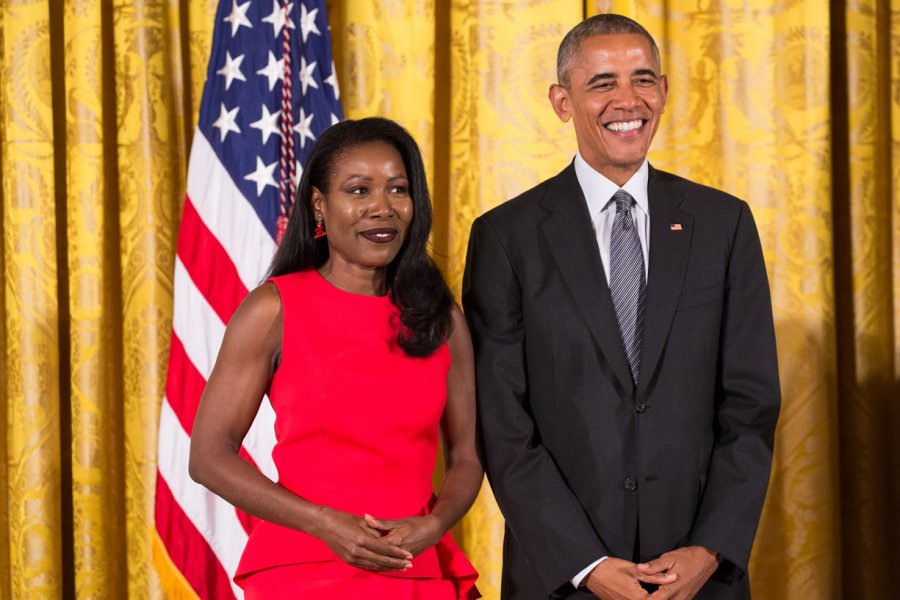As guests began to trickle in to the Ohio Theater at Playhouse Square, an older woman surveyed the crowd and winked at me. “Good—not everyone here has gray hair,” she said.
I was on hand to see Stephen L. Carter, the third author to come to Cleveland for the Writers Center Stage series, sponsored by the Cuyahoga County Public Library and Case Western Reserve University. My father introduced me to his work by keeping his nose in a well-worn copy of The Emperor of Ocean Park, winner of a 2003 Anisfield-Wolf award for fiction.
The Yale law professor, 58, warmed up the crowd with a few quips about football, poking fun of his favorite team, whose name “no one says any more.”
A graduate of both Yale and Stanford, Carter began his career as a law clerk for Judge Spottswood W. Robinson, III, of the United States Court of Appeals, and then to Justice Thurgood Marshall of the Supreme Court of the United States. His relationship with Marshall taught him valuable lessons, one of which is “being strategic in which battles you’re willing to fight,” he said. He spoke at length of his reverence for the justice, who, Carter recalled, was able to praise the opposition in the landmark Brown v. Board of Education case, which Marshall served as lead counsel.
Transitioning from law to a career as a writer wasn’t difficult, Carter told the crowd of almost 500. “All lawyers do is somewhat fiction,” he quipped, drawing a laugh from the crowd. However, he did acknowledge his lawyer training taught him to anticipate the “What ifs,” which translates to skillfully keeping the reader surprised at the plot twists in his novels.
Crafting his most recent novel, The Impeachment of Abraham Lincoln, which explores what might have happened if Lincoln survived the assassination attempt, took months of deep digging. “I like to get my facts right. I used photos, maps, personal diaries…anything I could. I wanted to capture an authentic D.C.” He called the process of writing novels “emotional agony,” but enjoyed the satisfaction from completing them.
During the Q&A portion of the evening, an audience member alluded to the government stalemate in Washington and asked what, if anything, voters could do to improve civility at the federal level. “Civility will come to politics when people decide it’s more important than the outcome,” he responded. “Politics ought to appeal to the best in us and hardly ever does. The best thing we can do is have a greater involvement in local politics, where our votes really matter.”


